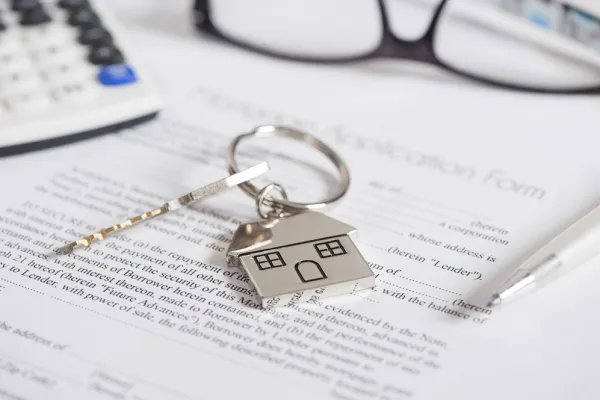It’s natural to want to keep your costs down during the process of selling a house.
Solicitor’s fees are one of the largest costs involved with a property transaction. Their support can often be crucial to getting the deal completed.
But nonetheless, it will reassure most homeowners to know exactly what they are paying for.
In the blog below, we’ve explained how much solicitor’s fees are for selling a house in the UK.
How much are solicitor’s fees for selling a house?
The solicitor’s cost involved with selling your house will vary. It depends on the value of your property.
In 2024, a freehold property with a value between £100,000 and £200,000 will usually have a solicitor’s cost of £880. Meanwhile, if the property is between £200,000 and £300,000, the cost goes up to £1,000.
On the higher end of the market, a freehold house sale valued between £600,000 to £700,000 costs around £1,600. For properties valued at over £1 million, the solicitor’s costs can rise above £2,000.
Data suggests prices are 10% higher when selling a leasehold property, compared to freehold. This is because there is more complication involved with a leasehold sale. This adds to the time it takes your solicitor to complete everything.
It is not always a good idea to hire a solicitor with low rates. A low price often coincides with a poor service, which can slow down or collapse the deal altogether if things are not completed.
Are solicitor’s fees different when selling versus buying?
Yes, solicitor’s fees when you are selling a house are lower, compared to their fees when you are buying a house.
This is because searches need to complete when you buy a house, which can take a significant amount of time for the solicitor. This task isn’t needed when you are selling – which keeps the cost down.
Does a Solicitor charge up-front or at the end?
In most cases, a Solicitor will get you to pay an up-front deposit for their services. The rest of the bill will then be due at the end, once the transaction completes.
Most solicitor’s charge by the hour. This means that the more work your transaction requires, the higher the cost.
But there are some solicitors in the UK that charge in a less conventional way. For example, they might have an up-front flat fee that doesn’t change. Or, in some rare cases, they could charge commission on the final sale price of the house.
Understand the solicitor’s pricing before you hire them. This ensures you aren’t blindsided by anything.
Does a Solicitor charge a commission on the sale of the house?
It is very rare for a solicitor to charge a commission on your house sale. In most cases, they will have an hourly rate, meaning that the more work they do for you, the more they charge.
What tasks will a solicitor do for the money I pay them?
Paying for a solicitor is worth the money because of all the tasks they complete for you. These activities have a major time need, and legal knowledge most people don’t have.
Some of the main tasks done by a solicitor include:
- Completing property searches
- Coordinating with the buyer’s solicitor
- Fittings and contents form (TA10) completion
- Property information form (TA6) completion
- Drafting the Exchange of Contracts
- Transferring funds on Completion Day
Clarify the tasks the solicitor will complete before you sign the contract. Speak to several experts until you find one that you can trust.
Is a Solicitor more expensive than a Conveyancer?
Solicitors and conveyancers fulfil the same role in a house sale. Solicitors are usually skilled in all legal areas, whereas conveyancers specialise in house sales.
This means that a solicitor often charges more because you are paying for their wider legal knowledge. This can be useful in specific scenarios.
Can I refuse to pay my Solicitor if I get a bad service?
You can register a complaint if you receive a bad service from a qualified solicitor.
You have up to one year from receiving your bill to register any complaints. You may have paid all or part of it and noticed that there is a discrepancy somewhere.
If this is the case, you can challenge the final bill by requesting the Senior Courts Costs Office to review it. They can then decide whether you paid too much.
The Law Society enables you to complain about a solicitor, too.
If you refuse to pay your solicitor’s fee because of a bad service, they will take you to court. In this scenario, you should get a new solicitor to support you with the case.
You will need to show how they breached their contract and why this means that payment is not due.
If a Judge orders you to pay your solicitor, you must do so.
Hire a solicitor registered with the relevant boards. If they are unlicensed or unqualified, it is difficult to register formal complaints or get any money back.
Can I sell my house without a Solicitor?
Yes, it is completely possible to sell your house without a solicitor. Although, most property experts do not recommend it.
If you don’t have legal expertise or experience, you may find it challenging to complete all the conveyancing tasks yourself. For instance, most people sell without a solicitor in an attempt to save money. But if you make a mistake, it costs you more in the long-run.
A far simpler way to offload your house without a solicitor is to sell to a cash buying company, or to use an auction house. Both of these methods make it easy for your sale to complete, without you having to instruct a solicitor.
For example, trustworthy cash buyers will hire a solicitor on your behalf. This professional completes all legal aspects of the deal. This is paid for through the below-market rate offer that you receive.
What happens if the sale falls through?
It is common for you to lose money when your house sale falls through. Unfortunately, solicitor fees are no different.
Most solicitors charge an hourly rate. This means that even if your sale collapses, they will send you an invoice. They will charge for all the hours of work they have completed, up until the transaction fell through.
In some occasions, solicitors will offer a ‘No Sale, No Fee’ service, although this is rare. Even in this situation though, disbursement fees will still be due.
Average solicitor’s fees for selling a house: Summary
As of the end of January 2022 the average cost for a solicitor when selling your house was £1046 including disbursements. You will find some charging much higher and some significantly lower. We have seen them range between just over £500 up to £1500.
As of January 2022 the average solicitor fees for selling a £250,000 house were £1046. Below are the averages at present excluding disbursement fees.
| Property Value | Average Solicitor Fee Selling Freehold | Average Solicitor Fee Selling Leasehold |
| Up to £100,000 | £820 | £990 |
| £100,001-£200,000 | £880 | £1050 |
| £201,000-£3000,000 | £1000 | £1170 |
| £301,000-£400,000 | £1090 | £1260 |
| £401,000-£500,000 | £1160 | £1340 |
| £501,000-£600,000 | £1390 | £1550 |
| £601,000-£700,000 | £1600 | £1770 |
Extra legal fees for selling a house
As we touched upon above, on top of the standard solicitor fees there will be some additional fees for third party payments that are handled by the solicitor.
Your completion statement from your solicitor will help show things in detail. The average costs for them are seen below.
| Disbursement | Average Cost |
| Title deeds | £25 |
| Property fraud fee | £10 |
| Transferring of ownership | £200-£500 |
| Money laundering checks | £8 (charged per person on the buying documents |
| CHAPS fee | £20-30 |
















